SOARING GROCERY PRICES
입력 2022.08.03 (15:05)
수정 2022.08.03 (16:47)
읽어주기 기능은 크롬기반의
브라우저에서만 사용하실 수 있습니다.
[Anchor Lead]
Amid soaring inflation, grocery prices in particular are rising sharply in part due to the rainy season and sweltering heat. Government measures to bring down vegetable and livestock prices are unlikely to have immediate effects.
[Pkg]
Vegetable prices are rising by the day. Vendors try to lower the price by selling smaller amounts. But customers are still hesitant.
[Soundbite] Jo Yeong-suk(Yongsan-gu Resident) : "Cabbage is so expensive. What can we do about this inflation? I live in Yongsan but come all the way here to Mangwon market."
The monsoon rain and scorching heat have dealt a blow to agricultural output, raising prices of key vegetables, such as cabbage, cucumber and spinach by more than 70%.
[Soundbite] Kim Jong-hee(Vegetable Vendor) : "The leaves all melt in the hot weather. A young radish costs as much as 8,000 won and 9,000 won. This is just crazy."
The price index on fresh food products has jumped 13% as imported beef, pork and seafood are also all more expensive these days. The government has vowed to increase the supply volume, but this takes time. Even if vegetable fields are expanded, it will take months to deliver actual crop shipments. Tariff quotas have been adjusted for imported livestock goods but many predict it will take some time to see tangible price decreases. Some tariff-free livestock imports have been coming into the country since late July, but price reductions are expected around mid-August.
[Soundbite] (Butcher) : "Just as oil price discounts take time, I don't feel any decline in imported prices yet."
The thanksgiving Chuseok holiday, coming earlier than usual this year, is also feared to further drive up prices.
[Soundbite] Han Bong-hee(Korea Rural Economic Institute) : "Holiday demand picks up from 2 to 3 weeks before Chuseok. Vegetable production has declined and high temperatures may lead to a poor harvest."
The government is set to lay out more measures this month to reduce the burden on consumers.
Amid soaring inflation, grocery prices in particular are rising sharply in part due to the rainy season and sweltering heat. Government measures to bring down vegetable and livestock prices are unlikely to have immediate effects.
[Pkg]
Vegetable prices are rising by the day. Vendors try to lower the price by selling smaller amounts. But customers are still hesitant.
[Soundbite] Jo Yeong-suk(Yongsan-gu Resident) : "Cabbage is so expensive. What can we do about this inflation? I live in Yongsan but come all the way here to Mangwon market."
The monsoon rain and scorching heat have dealt a blow to agricultural output, raising prices of key vegetables, such as cabbage, cucumber and spinach by more than 70%.
[Soundbite] Kim Jong-hee(Vegetable Vendor) : "The leaves all melt in the hot weather. A young radish costs as much as 8,000 won and 9,000 won. This is just crazy."
The price index on fresh food products has jumped 13% as imported beef, pork and seafood are also all more expensive these days. The government has vowed to increase the supply volume, but this takes time. Even if vegetable fields are expanded, it will take months to deliver actual crop shipments. Tariff quotas have been adjusted for imported livestock goods but many predict it will take some time to see tangible price decreases. Some tariff-free livestock imports have been coming into the country since late July, but price reductions are expected around mid-August.
[Soundbite] (Butcher) : "Just as oil price discounts take time, I don't feel any decline in imported prices yet."
The thanksgiving Chuseok holiday, coming earlier than usual this year, is also feared to further drive up prices.
[Soundbite] Han Bong-hee(Korea Rural Economic Institute) : "Holiday demand picks up from 2 to 3 weeks before Chuseok. Vegetable production has declined and high temperatures may lead to a poor harvest."
The government is set to lay out more measures this month to reduce the burden on consumers.
■ 제보하기
▷ 카카오톡 : 'KBS제보' 검색, 채널 추가
▷ 전화 : 02-781-1234, 4444
▷ 이메일 : kbs1234@kbs.co.kr
▷ 유튜브, 네이버, 카카오에서도 KBS뉴스를 구독해주세요!
- SOARING GROCERY PRICES
-
- 입력 2022-08-03 15:05:17
- 수정2022-08-03 16:47:07
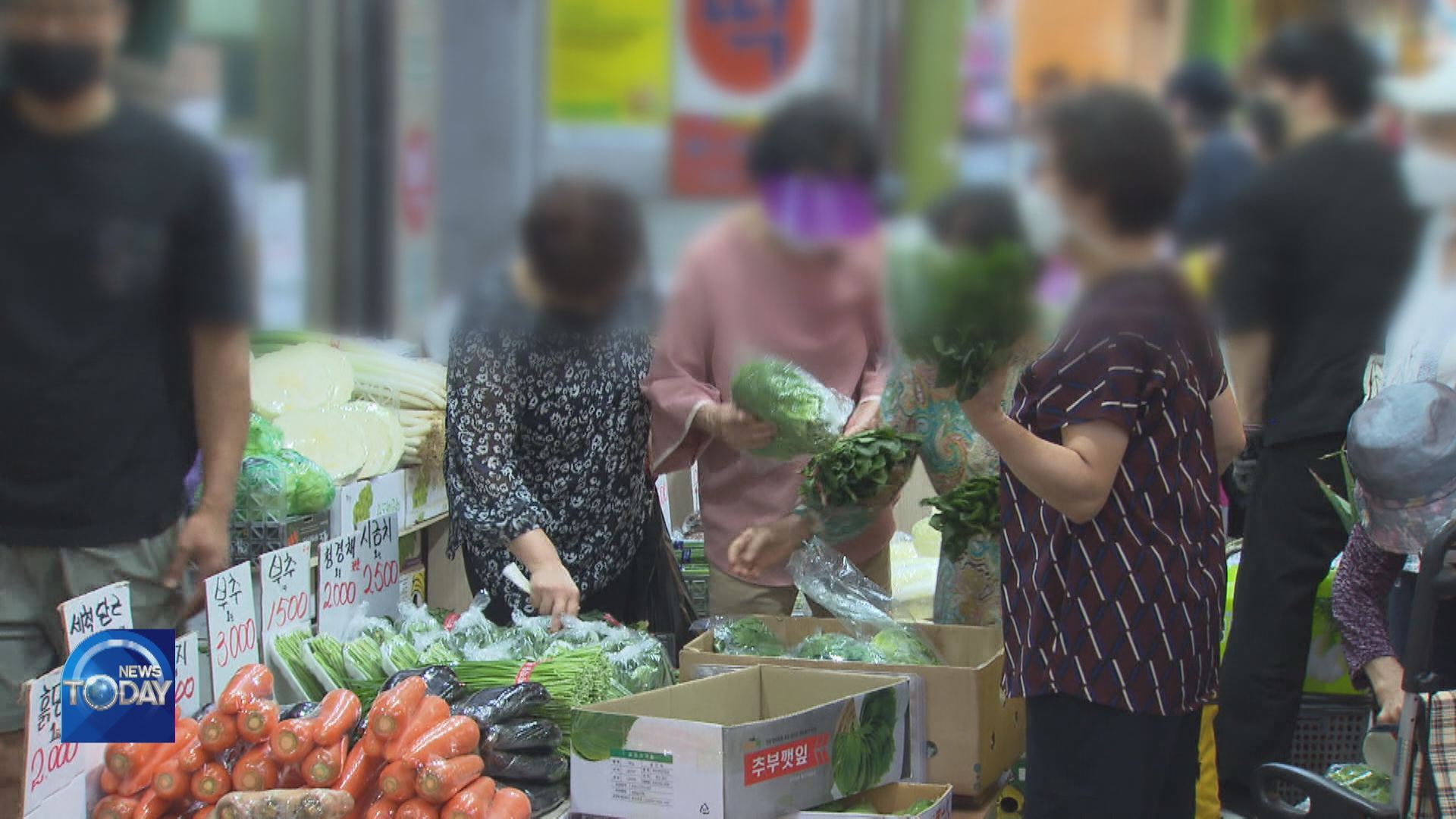
[Anchor Lead]
Amid soaring inflation, grocery prices in particular are rising sharply in part due to the rainy season and sweltering heat. Government measures to bring down vegetable and livestock prices are unlikely to have immediate effects.
[Pkg]
Vegetable prices are rising by the day. Vendors try to lower the price by selling smaller amounts. But customers are still hesitant.
[Soundbite] Jo Yeong-suk(Yongsan-gu Resident) : "Cabbage is so expensive. What can we do about this inflation? I live in Yongsan but come all the way here to Mangwon market."
The monsoon rain and scorching heat have dealt a blow to agricultural output, raising prices of key vegetables, such as cabbage, cucumber and spinach by more than 70%.
[Soundbite] Kim Jong-hee(Vegetable Vendor) : "The leaves all melt in the hot weather. A young radish costs as much as 8,000 won and 9,000 won. This is just crazy."
The price index on fresh food products has jumped 13% as imported beef, pork and seafood are also all more expensive these days. The government has vowed to increase the supply volume, but this takes time. Even if vegetable fields are expanded, it will take months to deliver actual crop shipments. Tariff quotas have been adjusted for imported livestock goods but many predict it will take some time to see tangible price decreases. Some tariff-free livestock imports have been coming into the country since late July, but price reductions are expected around mid-August.
[Soundbite] (Butcher) : "Just as oil price discounts take time, I don't feel any decline in imported prices yet."
The thanksgiving Chuseok holiday, coming earlier than usual this year, is also feared to further drive up prices.
[Soundbite] Han Bong-hee(Korea Rural Economic Institute) : "Holiday demand picks up from 2 to 3 weeks before Chuseok. Vegetable production has declined and high temperatures may lead to a poor harvest."
The government is set to lay out more measures this month to reduce the burden on consumers.
Amid soaring inflation, grocery prices in particular are rising sharply in part due to the rainy season and sweltering heat. Government measures to bring down vegetable and livestock prices are unlikely to have immediate effects.
[Pkg]
Vegetable prices are rising by the day. Vendors try to lower the price by selling smaller amounts. But customers are still hesitant.
[Soundbite] Jo Yeong-suk(Yongsan-gu Resident) : "Cabbage is so expensive. What can we do about this inflation? I live in Yongsan but come all the way here to Mangwon market."
The monsoon rain and scorching heat have dealt a blow to agricultural output, raising prices of key vegetables, such as cabbage, cucumber and spinach by more than 70%.
[Soundbite] Kim Jong-hee(Vegetable Vendor) : "The leaves all melt in the hot weather. A young radish costs as much as 8,000 won and 9,000 won. This is just crazy."
The price index on fresh food products has jumped 13% as imported beef, pork and seafood are also all more expensive these days. The government has vowed to increase the supply volume, but this takes time. Even if vegetable fields are expanded, it will take months to deliver actual crop shipments. Tariff quotas have been adjusted for imported livestock goods but many predict it will take some time to see tangible price decreases. Some tariff-free livestock imports have been coming into the country since late July, but price reductions are expected around mid-August.
[Soundbite] (Butcher) : "Just as oil price discounts take time, I don't feel any decline in imported prices yet."
The thanksgiving Chuseok holiday, coming earlier than usual this year, is also feared to further drive up prices.
[Soundbite] Han Bong-hee(Korea Rural Economic Institute) : "Holiday demand picks up from 2 to 3 weeks before Chuseok. Vegetable production has declined and high temperatures may lead to a poor harvest."
The government is set to lay out more measures this month to reduce the burden on consumers.
이 기사가 좋으셨다면
-
좋아요
0
-
응원해요
0
-
후속 원해요
0










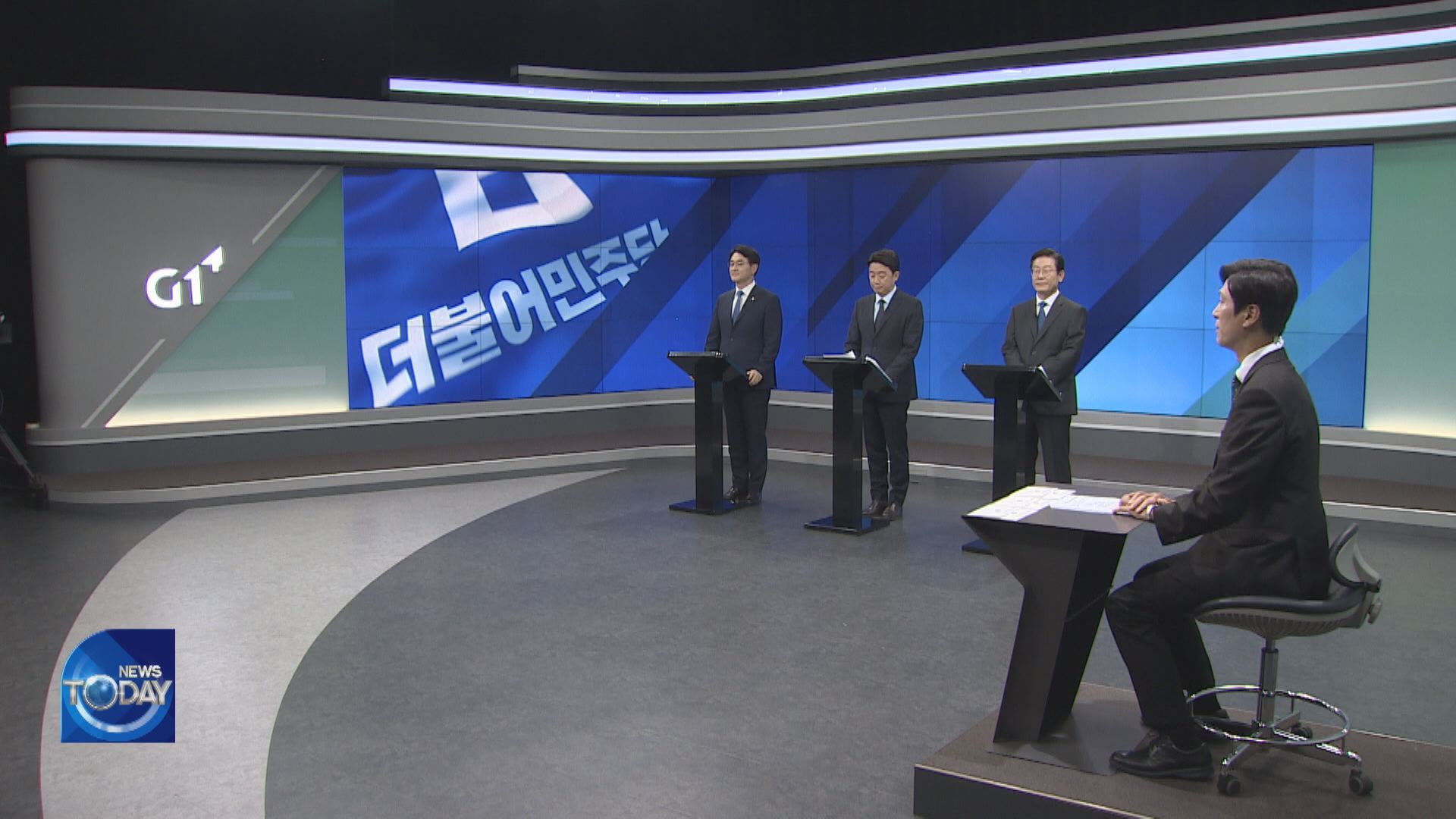
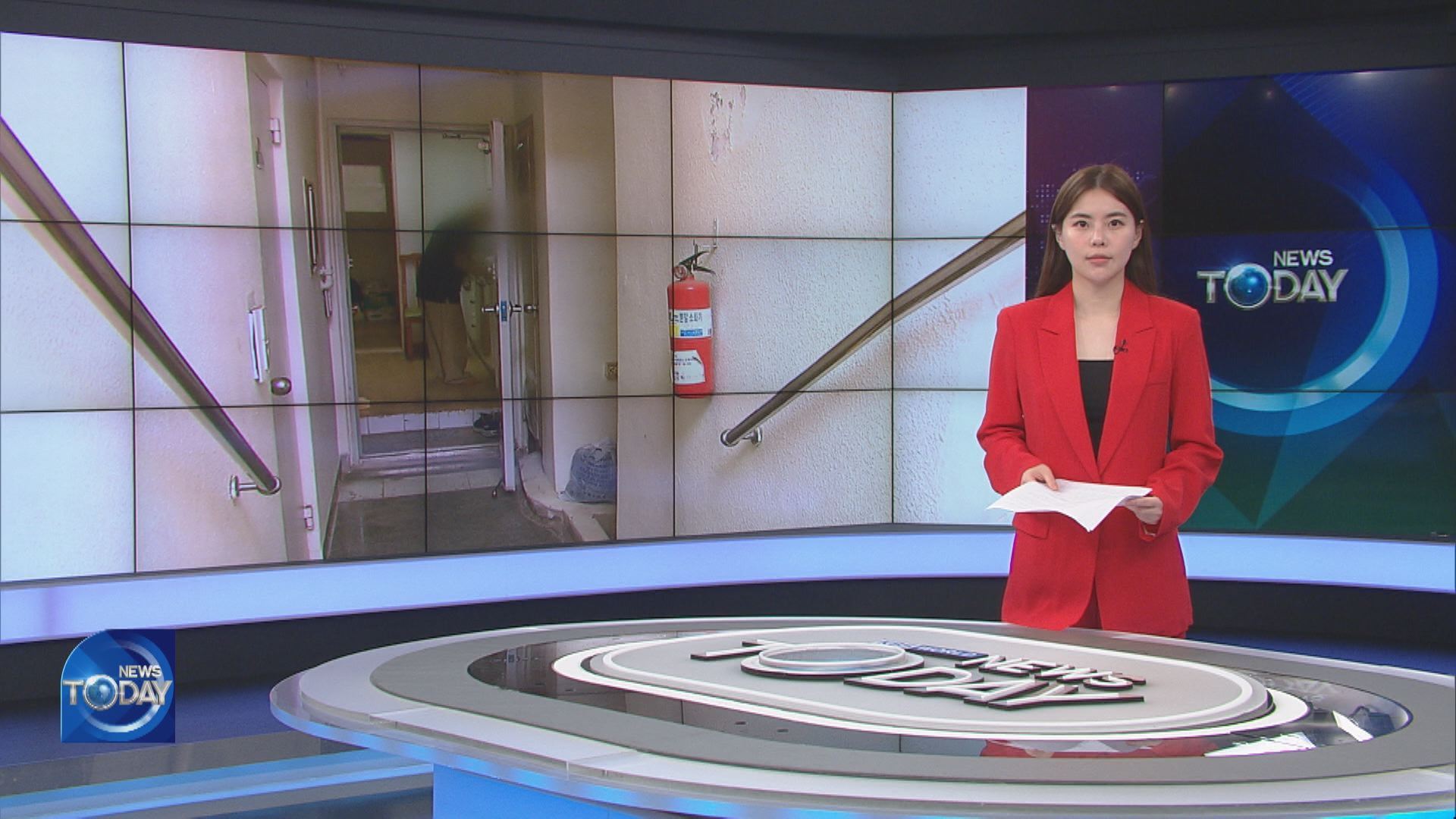

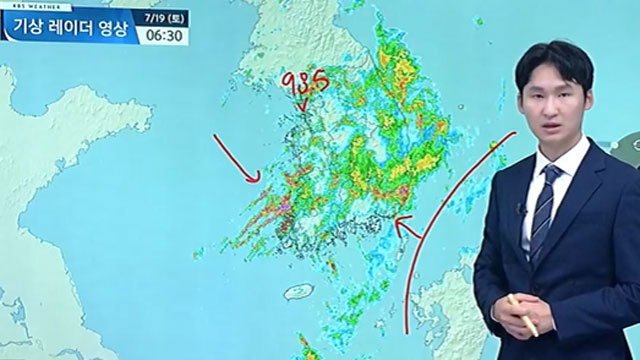
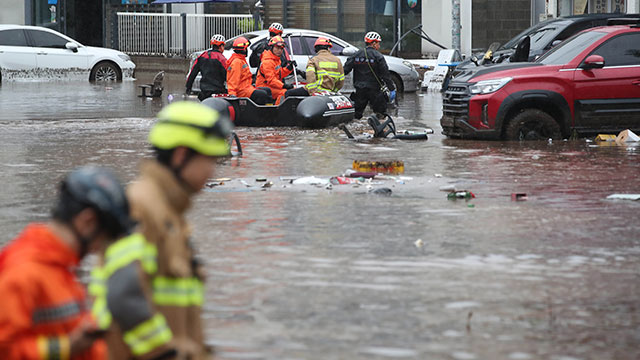
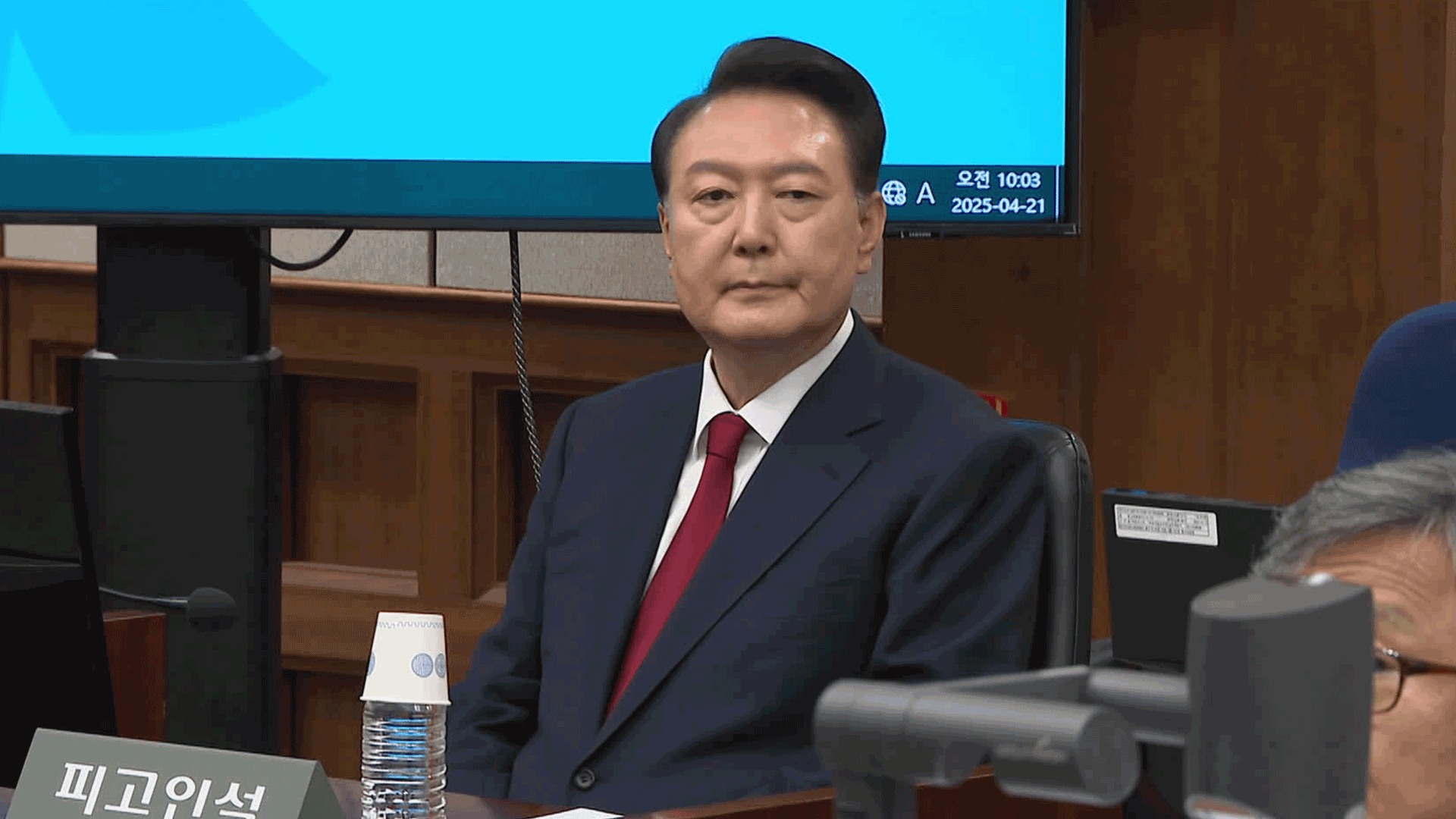

이 기사에 대한 의견을 남겨주세요.